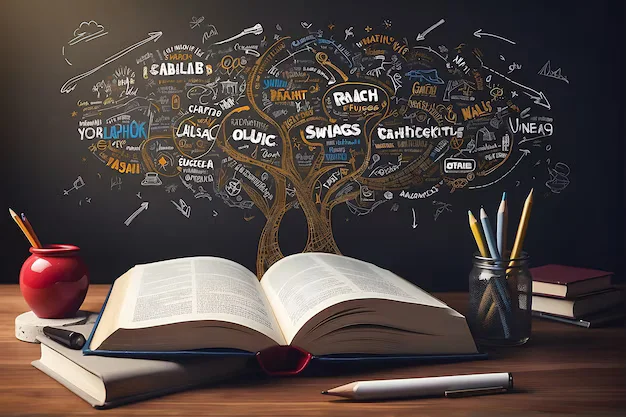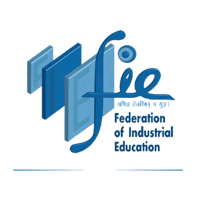
Education stands as the bedrock of a nation’s prosperity, societal advancement, and individual progress. A well-structured and equitable education system is critical in shaping the future of any society. Recognizing this, governments worldwide dedicate considerable resources to the creation and implementation of education policies. These policies provide a framework for establishing and sustaining an education system that effectively meets the diverse needs of learners, educators, and communities.
The education landscape has undergone significant transformations over the years, influenced by changes in pedagogical methods, technological advancements, and evolving societal expectations. Consequently, education policies must adapt to address the challenges and demands of the 21st century. The development of these policies is instrumental in shaping educational practices, ensuring resource allocation, fostering innovation, and addressing societal needs.
Importance of Education Policy
Education policy development holds immense importance, which can be understood through several key aspects:
- Ensuring Quality Education: Education policies establish standards and guidelines that uphold the quality of education in schools and colleges. They define curriculum frameworks, assessment methods, and teacher qualifications, all of which contribute to educational excellence.
- Promoting Equity and Access: Policies are crucial for advancing equitable access to education. They address disparities related to gender, socio-economic status, geographical location, and special educational needs, ensuring that all individuals have equal educational opportunities.
- Fostering Innovation and Improvement: Effective policies encourage innovation in teaching practices, educational technology, and curriculum design. They provide a framework for continuous improvement, allowing the education system to evolve in response to changing societal needs.
- Meeting Societal Needs: Education policies align with broader societal goals, including preparing a skilled workforce, nurturing informed citizens, and addressing pressing issues such as climate change, health, and globalization.
- Enhancing Global Competitiveness: In a globalized world, education policies can boost a country’s international competitiveness by aligning education with global economic demands, thereby preparing individuals for success in an international context.
Definition of Education Policy
What is Education Policy?
Education policy comprises a set of principles, rules, guidelines, and laws crafted and implemented by governments, educational institutions, and other stakeholders to regulate and guide education provision. These policies outline the overarching vision, goals, and strategies for education within a specific jurisdiction, covering areas such as curriculum development, teacher certification, funding allocation, assessment, and school infrastructure.
Education policies influence not only macro-level aspects but also the operational details within educational institutions. They provide a framework for decision-making and actions at all levels, from national authorities to individual schools.
Components of Education Policy
Education policies typically include several key components:
- Vision and Goals: Articulates the vision and long-term goals for the education system, offering a broad perspective on intended outcomes.
- Objectives and Strategies: Defines specific objectives and strategies to achieve broader goals, including changes in curriculum, teacher training, and technology integration.
- Curriculum Framework: Outlines the content and structure of the curriculum, specifying subjects, learning outcomes, and assessment methods.
- Funding and Resource Allocation: Details the distribution of financial resources to educational institutions, ensuring equitable access and efficient use.
- Teacher Qualifications and Training: Covers teacher certification, professional development, and codes of conduct, essential for maintaining a high-quality teaching workforce.
- Assessment and Evaluation: Dictates methods for assessing student learning and school performance, including standardized testing and teacher evaluations.
- Inclusivity and Equity: Aims to ensure equitable access to education for all students, addressing needs related to disabilities, language barriers, and disadvantaged communities.
Types of Education Policies
Education policies can be categorized into various types, each addressing specific aspects of the education system:
- Curriculum Policies: Define the content, structure, and standards for what is taught in schools, including subject-specific frameworks and teaching methods.
- Teacher Policies: Pertains to teacher qualifications, certification, professional development, and ethics, ensuring educator competence and professionalism.
- Funding and Finance Policies: Govern the allocation of resources to educational institutions, including budgets and expenditure guidelines.
- Inclusion and Diversity Policies: Focus on providing equal educational opportunities for all, including students with disabilities, culturally diverse students, and other marginalized groups.
- Assessment and Accountability Policies: Outline methods for evaluating student learning and school performance, incorporating standardized testing and mechanisms for accountability.
Understanding these components and types of education policies is essential for grasping how they shape the education system and influence the experiences of students and educators. The subsequent sections will delve into the intricacies of education policy development, exploring its challenges, recent trends, and its role in shaping the future educational landscape.
The Process of Education Policy Development
The development of education policies is a complex process involving various stages, from goal setting to formulation, implementation, and evaluation. This section explores the nuances of this process.
Stakeholder Involvement
Education policy development is a collaborative effort, incorporating input from:
- Government and Policymakers: Central and local authorities set the policy agenda, make legal changes, and allocate resources.
- Educators and Schools: Teachers and administrators provide insights into the practical implications of policies on classroom dynamics.
- Parents and Communities: Engage in policy discussions, especially at the local level, due to their vested interest in the education system.
- Researchers and Academics: Provide evidence-based recommendations through research and analysis.
- Non-Governmental Organizations (NGOs): Advocate for specific educational issues and mobilize resources for educational projects.
- Students: Their perspectives are considered in policies related to rights, safety, and welfare.
Collaborative involvement ensures policies are informed, relevant, and considerate of diverse perspectives and needs.
Research and Data Analysis
Effective policy development relies on comprehensive research and data analysis:
- Needs Assessment: Identifies educational needs and challenges by examining performance, resource allocation, and social factors.
- Data Collection: Gathers data on demographics, school performance, teacher qualifications, and funding.
- Research and Analysis: Analyzes data to identify trends and opportunities.
- Best Practices: Studies successful policies from other regions to adopt best practices.
Goal Setting and Objective Formulation
Clear goals and objectives are set based on research and stakeholder input. Objectives should be SMART—Specific, Measurable, Achievable, Relevant, and Time-bound—to guide policy implementation and evaluation.
Policy Formulation
Involves translating goals into concrete measures:
- Policy Options: Develops various options to address identified needs.
- Legal Framework: Drafts policies within the legal framework, ensuring compliance with laws and regulations.
- Cost-Benefit Analysis: Assesses potential costs and benefits of each policy option.
- Consultation: Seeks feedback from stakeholders to refine policies.
Implementation and Evaluation
Successful policies require effective implementation and continuous evaluation:
- Implementation Planning: Develops plans for policy rollout, including curriculum changes and resource allocation.
- Monitoring and Evaluation: Regularly assesses policy impact through data analysis.
- Feedback and Adaptation: Adjusts policies based on evaluation results.
- Sustainability: Ensures long-term sustainability by securing resources and support.
Effective policy development is an iterative process, requiring ongoing evaluation and adaptation to address changing educational needs and challenges.
Recent Trends and Challenges in Education Policy Development
Education policy development is continually evolving, influenced by emerging trends and challenges. Recent trends include:
- Professional Development: Incorporates training in digital pedagogy to adapt to new teaching methods.
- COVID-19 Impact: The pandemic has introduced unprecedented challenges to education.
- Gender and LGBTQ+ Inclusivity: Expands to support the needs of LGBTQ+ students, ensuring a safe and inclusive environment.
- Funding and Resource Allocation: Persistent budgetary constraints and disparities in funding remain significant challenges.
Education policies must remain agile to address unforeseen circumstances and evolving educational needs. They are crucial in shaping systems that prepare students for the complex demands of the 21st century.
Conclusion
This research highlights the critical role of education policy development in shaping effective education systems. Recommendations include:
- Inclusivity and Equity: Prioritize policies that promote inclusivity and address disparities.
- Digital Learning and Innovation: Embrace technology and innovative teaching methods.
- Resilience and Adaptability: Develop policies that enhance the education system's resilience to challenges.
- Sustainable Funding: Ensure equitable and sufficient funding for education.
- Evidence-Based Decision-Making: Base policies on thorough research and data analysis.
- Stakeholder Engagement: Continue to involve diverse stakeholders in policy development.
Education policy development is vital for ensuring quality and effectiveness in education systems globally. By addressing evolving challenges and emphasizing inclusive, innovative practices, we can shape a future-ready education system that benefits all learners and contributes to societal progress.




